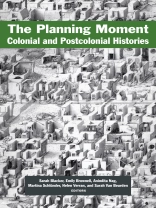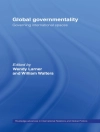Empires and their aftermaths were massive planning institutions; in the past two hundred years, the natural and social sciences emerged—at least in part—as modes of knowledge production for imperial planning. Yet these connections are frequently under-emphasized in the history of science and its corollary fields.
The Planning Moment explores the myriad ways plans and planning practices pervade recent global history. The book is built around twenty-seven brief case studies that explore the centrality of planning in colonial and postcolonial environments, relationships, and contexts, through a range of disciplines: the history of science, science and technology studies, colonial and postcolonial studies, urban studies, and the history of knowledge.
If colonialism made certain landscapes, populations, and institutions legible while obscuring others, The Planning Moment reveals the frequently disruptive and violent processes of erasure in imperial planning by examining how “common sense” was produced and how the intransigence of planning persists long after decolonization. In recognizing the resistance and subversion that often met colonial plans, the book makes visible a range of strategies and techniques by which planning was modified and reappropriated, and by which decolonial futures might be imagined.
Contributors: Itty Abraham, Benjamin Allen, Sarah Blacker, Emily Brownell, Lino Camprubí, John Di Moia, Mona Fawaz, Lilly Irani, Chihyung Jeon, Robert Kett, Monika Kirloskar-Steinbach, Karen Mc Allister, Laura Mitchell, Gregg Mitman, Aaron Moore (†), Nada Moumtaz, Tahani Nadim, Anindita Nag, Raúl Necochea López, Tamar Novick, Benjamin Peters, Juno Salazar Parreñas, Martina Schlünder, Sarah Van Beurden, Helen Verran, Ana Carolina Vimieiro Gomes, Alexandra Widmer, and Alden Young
विषयसूची
Foreword
by Dagmar Schäfer | ix
Entanglements of Colonial and Postcolonial Planning:
An Introduction | 1
Census: New Hebrides/Vanuatu, 1967
Alexandra Widmer | 20
Charcoal: Dar es Salaam, Tanzania, 1973
Emily Brownell | 29
COBOL: The Pentagon, United States of America, 1959
Benjamin Allen | 37
Computing: United States of America, 1949
Benjamin Peters | 46
Constitution: India, 1950
Monika Kirloskar-Steinbach | 56
Dam: South Korea, 1961
Aaron S. Moore | 64
Dodecahedral Silo: Spain, 1953
Lino Camprubí | 76
EMES Sonochron: Federal Republic of Germany, 1986
Martina Schlünder | 84
Famine: India, 1877
Anindita Nag | 96
Fertility Survey Workforce: Puerto Rico, 1949
Raúl Necochea López | 104
Fertilizer: South Korea, 1952
John Di Moia | 113
Grid: New York, United States of America, 1972
Robert J. Kett | 124
Hackathon: India, 2012
Lilly Irani | 133
Kishikishi: Belgian Congo, 1956
Sarah Van Beurden | 144
Land Parcel: Lebanon, 1990
Mona Fawaz and Nada Moumtaz | 152
National Budget: Sudan, 1946
Alden Young | 160
Orangutans: Borneo, 1962
Juno Salazar Parreñas | 168
Parasite: Liberia, 1926
Gregg Mitman | 176
Riverbed: South Korea, 2008
Chihyung Jeon | 186
Seeds: German East Africa, 1892
Tahani Nadim | 195
Steel Plant: Orissa State, India, 1955
Itty Abraham | 204
Surnames: Brazil, 1979
Ana Carolina Vimieiro Gomes | 212
Taxonomer: United States of America, 1923
Laura J. Mitchell | 220
Treasures: Palestine/Israel, 1979
Tamar Novick | 230
Water Samples: Treaty 8 Territory, Canada, 2012
Sarah Blacker | 235
Weeds: Laos, 2006
Karen Mc Allister | 245
Zoomorphic Wickerwork Figure: Australian Administered British New Guinea, 1908
Helen Verran | 254
The Planning Moment: Avenues for Analysis | 265
Acknowledgments | 275
Archival Sources | 277
Bibliography | 279
List of Contributors | 311
Index | 315
लेखक के बारे में
Sarah Van Beurden is Associate Professor History and African American and African Studies at the Ohio State University.












